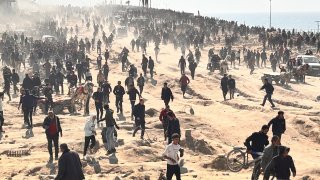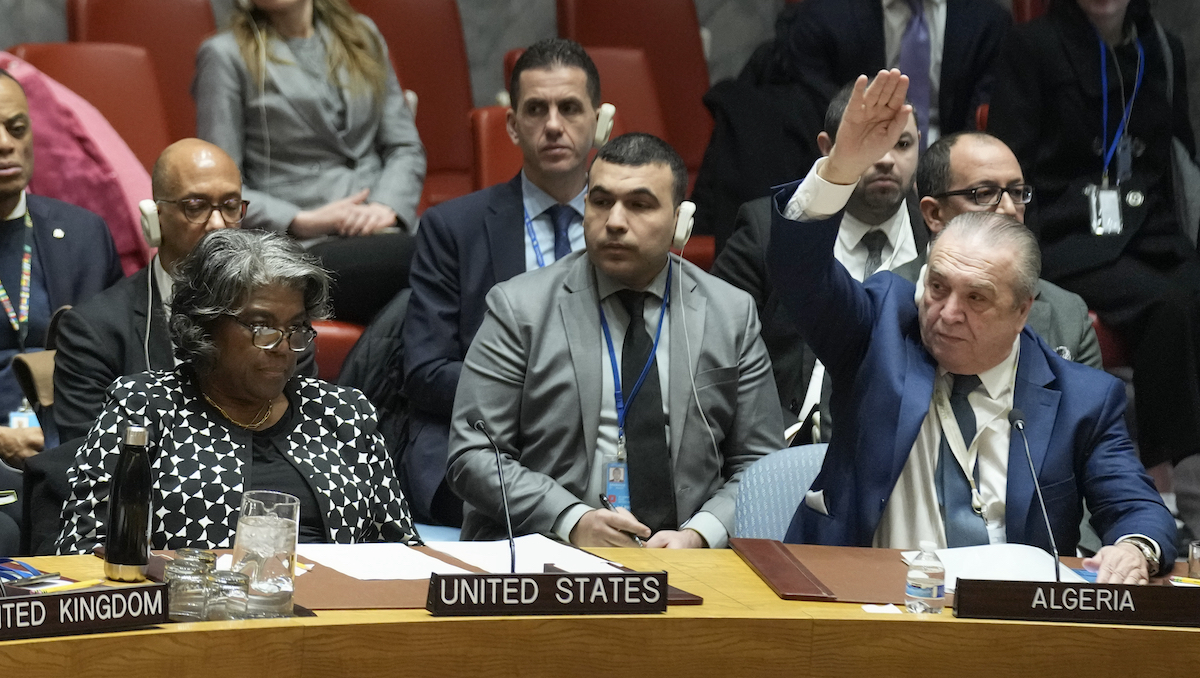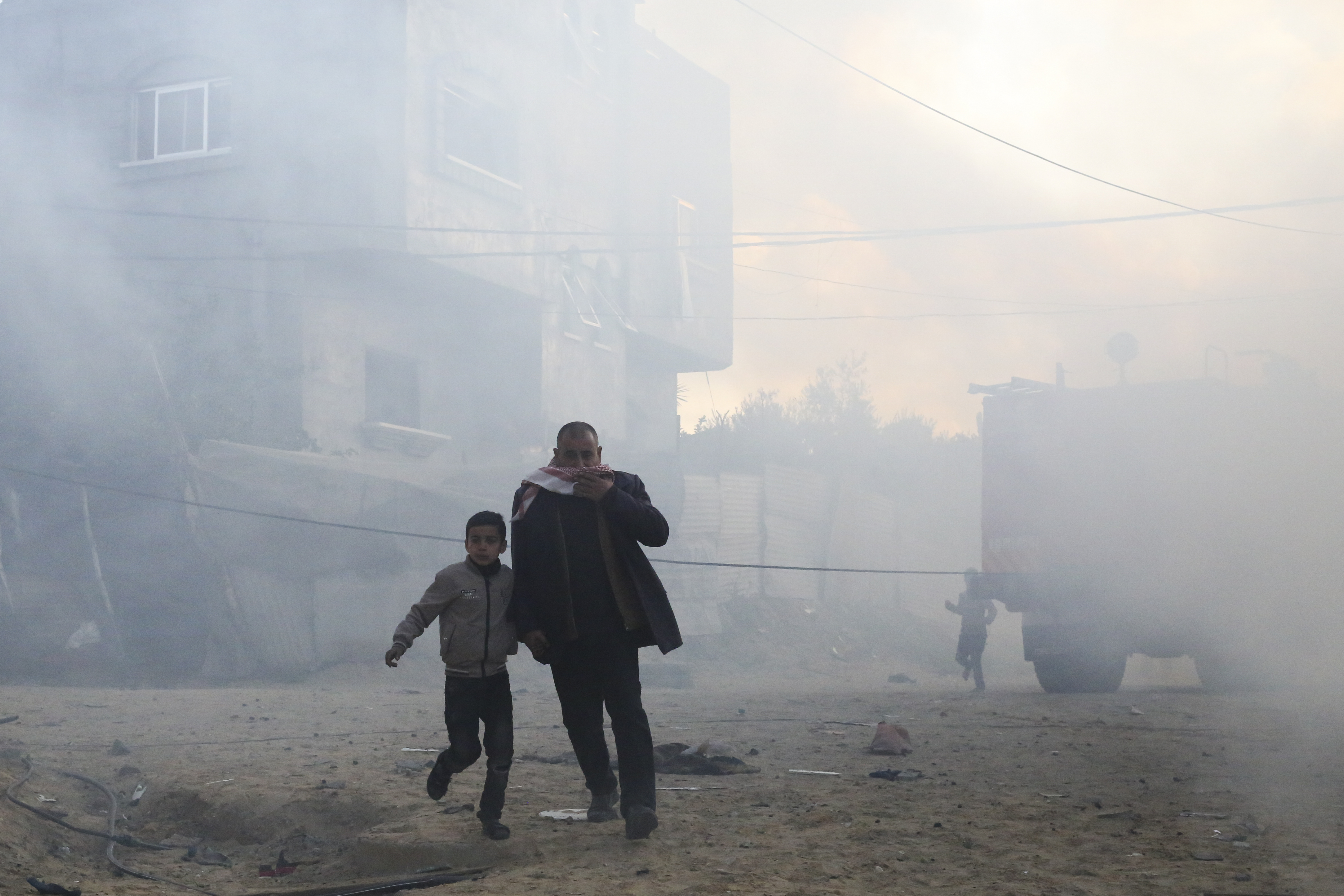
Israel has failed to comply with an order by the United Nations' top court to provide urgently needed aid to desperate people in the Gaza Strip, Human Rights Watch said Monday, a month after a landmark ruling in The Hague ordered Israel to moderate its war.
In a preliminary response to a South African petition accusing Israel of genocide, the U.N.’s top court ordered Israel to do all it can to prevent death, destruction and any acts of genocide in Gaza. It stopped short of ordering an end to its military offensive that has triggered a humanitarian catastrophe in the tiny Palestinian enclave. Israel vehemently denies the charges against it, saying it is fighting a war in self-defense.
One month later and nearly five months into the war, preparations are underway for Israel to expand its ground operation into Rafah, Gaza’s southernmost town along the border with Egypt, where 1.4 million Palestinians have flooded into in search of safety.
Early Monday, Israeli Prime Minister Benjamin Netanyahu’s office said the army had presented to the War Cabinet its operational plan for Rafah as well as plans to evacuate civilians from the battle zones. It gave no further details.
The situation in Rafah, where dense tent camps have sprouted to house the displaced, has sparked global concern and Israel’s allies have warned that it must protect civilians in its battle against Hamas.
Also Monday, Palestinian Prime Minister Mohammed Shtayyeh said he was submitting his government's resignation. The move, which still must be accepted by President Mahmoud Abbas, could open the door to U.S.-backed reforms in the Palestinian Authority, which the U.S. wants to rule postwar Gaza but in a revitalized shape.
In its ruling last month, the International Court of Justice ordered Israel to follow six provisional measures, including taking “immediate and effective measures to enable the provision of urgently needed basic services and humanitarian assistance to address the adverse conditions of life faced by Palestinians in the Gaza Strip.”
Under the orders, Israel also must submit a report on what it is doing to adhere to the measures within a month. While Monday marked a month since the court’s orders were issued, it was not immediately clear whether Israel had handed in such a report. The Israeli Foreign Ministry had no immediate comment.
Human Rights Watch said Israel was not adhering to the court’s order on aid provision, citing a 30% drop in the daily average number of aid trucks entering Gaza in the weeks following the court’s ruling. It said Israel was not adequately facilitating fuel deliveries to hard-hit northern Gaza and blamed Israel for blocking aid from reaching the north, where the World Food Program said last week it was forced to suspend aid deliveries because of increasing chaos in the isolated part of the territory.
Get a weekly recap of the latest San Francisco Bay Area housing news. >Sign up for NBC Bay Area’s Housing Deconstructed newsletter.
“The Israeli government has simply ignored the court’s ruling, and in some ways even intensified its repression, including further blocking lifesaving aid,” said Omar Shakir, Israel and Palestine director at Human Rights Watch.
Israel denies it is restricting the entry of aid and has instead blamed humanitarian organizations operating inside Gaza, saying hundreds of trucks filled with aid sit idle on the Palestinian side of the main crossing. The U.N. says it can’t always reach the trucks at the crossing because it is at times too dangerous.
Netanyahu’s office also said Monday the War Cabinet had approved a plan to deliver humanitarian aid safely into Gaza in a way that would “prevent the cases of looting.” It did not disclose further details.
The war, launched after Hamas-led militants rampaged across southern Israel, killing 1,200 people, mostly civilians, and taking roughly 250 people hostage, has unleashed unimaginable devastation in Gaza.
Nearly 30,000 people have been killed in Gaza, two thirds of them women and children, according to the Health Ministry in Hamas-run Gaza which does not distinguish in its count between fighters and noncombatants. Israel says it has killed 10,000 militants, without providing evidence.
Fighting has flattened large swaths of Gaza's urban landscape, displacing about 80% of the territory’s 2.3 million people who have crammed into increasingly smaller spaces looking for elusive safety.
The crisis has pushed a quarter of the population toward starvation and raised fears of imminent famine, especially in the northern part of Gaza, which was the first focus of Israel’s ground invasion and where starving residents have been forced to eat animal fodder and search for food in demolished buildings.
“We have to feed the children. They keep screaming they want food. We cannot find food. We don’t know what to do,” said market vendor Um Ayad in northern Jabaliya, who showed off a leafy weed that people pick from the harsh, dry soil and eat.
Philippe Lazzarini, commissioner general of the U.N. agency for Palestinians, said it has not been able to deliver food to northern Gaza since Jan. 23, adding on X, formerly Twitter, that “our calls to send food aid have been denied.”
Israel said that 245 trucks of aid entered Gaza on Sunday, less than half the amount that entered daily before the war.
But Human Rights Watch, citing U.N. figures, said that between Jan. 27 and Feb. 21, the daily average of trucks entering stood at 93, compared to 147 trucks a day in the three weeks before the world court’s ruling. The daily average dropped further, to 57, between Feb. 9 and 21, the figures showed.
United Nations agencies and aid groups say the hostilities, the Israeli military’s refusal to facilitate deliveries and the breakdown of order inside Gaza make it increasingly difficult to get vital aid to much of the coastal enclave. In some cases, crowds of desperate Palestinians have surrounded delivery trucks and stripped the supplies off them.
The U.N. has called on Israel to open more crossings, including in the north, and to improve the coordination process.
___
Goldenberg reported from Tel Aviv, Israel. Associated Press writer Josef Federman contributed to this report from Jerusalem.



